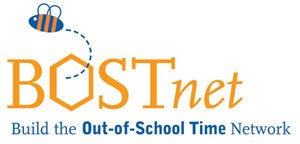After a contentious few weeks on capital hill, President Obama signed the American Recovery and Reinvestment Act of 2009 on February 17, 2009. The legislation provides for a combination of stimulus spending and tax cuts totaling $789 billion (according to some estimates, approximately 40% of the total is tax cuts). Speaking to reporters the day after the bill was signed, Massachusetts Governor Deval Patrick noted that the state will receive somewhere between $6 and $9 billion in federal money. Patrick also noted that the state has limited flexibility in how these funds are used because under the provisions of the bill funds will go to “specific programs with specific purposes.”
A variety of provisions in the bill will have either a direct or indirect impact on funding for afterschool and out-of-school time services for families in Massachusetts. While the details are still unclear, the key provisions for our field include:
1. $2 Billion for Child Care and Development Block Grants (CCDBG)—The CCDBG is one of the largest funding streams for childcare subsidies, such as vouchers. According to the Massachusetts Afterschool Partnership, MA will receive approximately $24 million in these funds. This represents a 23% increase in the FY2009 allocation, to be used within the next 2-3 years:
· Over $20 million in non-targeted CCDBG funds
· Nearly $2 million in non-targeted quality improvement funds
· Over $1 million in targeted quality improvement funds for infants and toddlers
2. $2.1 billion for Head Start and Early Head Start. The Department of Early Education and Care anticipate an additional $10.1 million for Massachusetts.
3. $13 Billion for Title 1 Funds—These funds are used to support programs that improve the academic opportunities for disadvantaged and underrepresented students, including both in-school and out-of-school programs.
· MA will likely receive over $208 million for Title 1 funding
4. The Workforce Investment Act grants that support job training services will receive $1.2 billion for youth job training programs and summer employment opportunities for youth. The WIA also includes $50 million for the YouthBuild program providing at-risk youth educational and occupational experience and credentials while building affordable housing.
· MA set to receive approximately $25 million for youth job services and summer job opportunities.
5. The AmeriCorps and AmeriCorps VISTA program will receive $160 million through the stimulus bill to support existing state and national grantees and to support AmeriCorps Volunteers, many of who provide staffing for afterschool programs.
6. $53.6 billion for State Fiscal Stabilization Funds—Included in these funds are $5 billion to be coordinated by the Department of Education through state grants and a $650 innovation fund. States will also receive approximately $40 billion in Education Blog Grants.
· MA will receive approximately $813 million for education spending. This funding is targeted to make up for cuts in k-12 funding since FY2008; to fund increases in education spending based on state funding formulas; and, to make up for funding cuts to higher education since FY2008.
We will continue to keep you updated as more details become clear about how these funds will be specifically allocated. It is crucial that we remain vocal and reach out to our state leaders to ensure that funding decisions provide the most critical supports for the children and youth of Massachusetts. For more information on the state's use of ARRA funds, visit www.mass.gov/recovery
16 years ago
